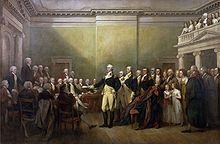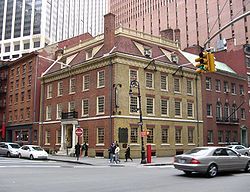Transcript
NSA Surveillance Fallout Costs IT Industry Billions
Mathew J. Schwartz, InformationWeek
11/27/2013 01:10 PM
Analysts predict US tech companies may lose $180 billion by 2016 due to international concerns about intelligence agencies’ spying.
For US technology firms that sell hardware, software, and services, that would be a collective loss of $22 billion to $35 billion through 2016 due to foreign businesses and governments worrying if the National Security Agency (NSA) can spy on those products or services. That figure comes via the Information Technology & Innovation Foundation (ITIF), a Washington-based policy research group backed by many leading technology firms, including Cisco, Google, IBM, and Intel.
“The potential fallout is pretty huge given how much our economy depends on the information economy for its growth,” Rebecca MacKinnon, a senior fellow at Washington-based policy group New America Foundation, told Bloomberg. “It’s increasingly where the U.S. advantage lies.”
…
“If a foreign enemy was doing this much damage to the economy, people would be in the streets with pitchforks,” Sen. Ron Wyden (D-Ore.) said last month at a Cato Institute conference, The Washington Times reported. Likewise, Rep. James Sensenbrenner (R-Wis.), who authored the Patriot Act, which the White House said authorizes the NSA’s digital dragnet, has accused the intelligence agency of overreaching. Some critics, however, have asked why Congressional oversight mechanisms failed to rein in the NSA’s surveillance programs.
…
Richard Salgado, Google’s director of law enforcement and information security, warned the Senate Judiciary Subcommittee on Privacy, Technology, and the Law that the NSA’s spying activities had caused governments in some countries — including Brazil and Norway — to rethink how they’ll procure cloud services or work with US firms. Brazil, for example, has introduced a bill that would require service providers such as Google to store all Brazilian data in the country or risk massive fines.
Salgado, in his testimony, said those types of efforts could undermine today’s Internet. “If data localization and other efforts are successful, then what we will face is the effective Balkanization of the Internet and the creation of a ‘splinternet’ broken up into smaller national and regional pieces with barriers around each of the splintered Internets to replace the global Internet we know today,” he said.
NSA: We Steal Industry Secrets, But Not for Competitive Advantage
by emptywheel
Posted on December 2, 2013
The NSA has uttered various versions of this claim since the Snowden leaks started. But I find this formulation particularly telling. NSA is not denying they steal industry secrets (nor could they, since we know they’ve stolen data from corporations like Petrobras and have stolen secrets from a range of hacking targets).
They’re just denying they steal secrets in order to give US companies a competitive advantage.
Of course, they’re not calculating the advantage that having the world’s most voracious COMINT spy might have for owners of IP. They’re not talking about how intelligence on opposition to US products (like GMO or untested chemicals) translates into industrial advantage. They’re not talking about how spying influences the work of Defense Contractors (who do, of course, also sell on the international market). They’re not talking about how larger financial spying ultimately gives American companies an advantage.
But so long as NSA’s workers can tell their mother-in-law they’re not facilitating US cheating (which they are), it’s all good, I guess.



